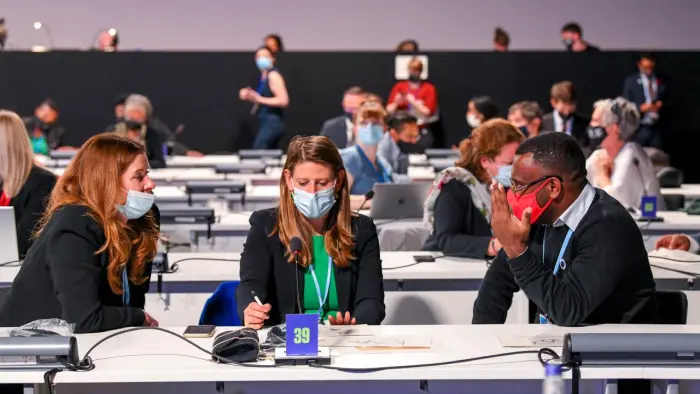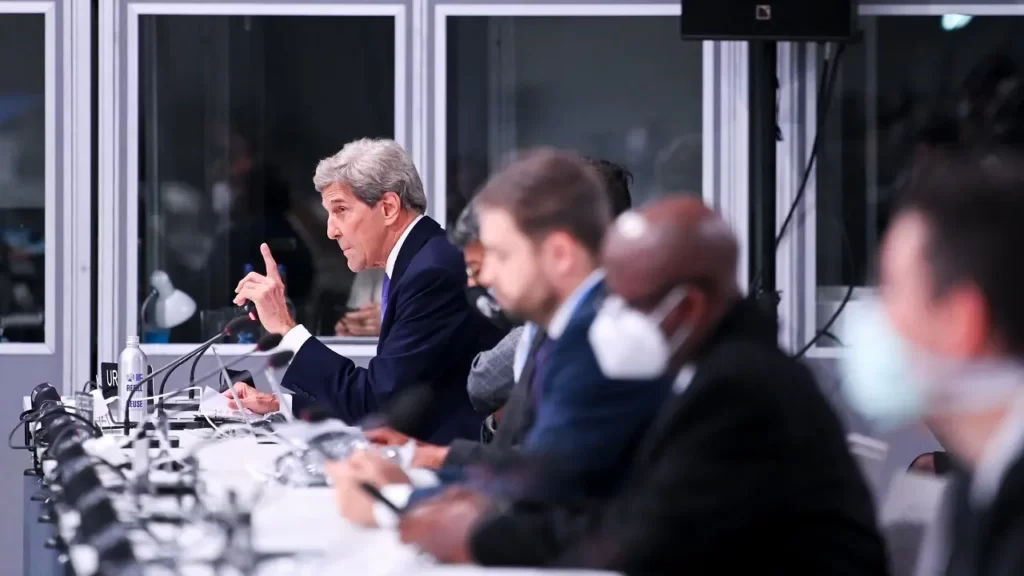If ever a COP were burdened by high expectations, it was Glasgow COP 26. In the face of a rapidly depleting carbon budget, escalating scientific warnings, and a run of alarming weather extremes, COP 26 was billed as “literally the last chance saloon”. At the same time, the wider context to the Conference was decidedly inauspicious. The formal UNFCCC climate negotiations had been on ice for two years due to the Covid-19 pandemic, which had wrought devastation across the world. The continuing health situation had raised immense obstacles to the smooth organisation of the COP, to the point of uncertainty over whether it would be held in person at all. Relations between China and the US were at a low ebb, with wider diplomatic tensions also engulfing the UK host and others. As COP opened, it was hard to see how the gap between high expectation and gloomy reality might be bridged. In the event, COP was neither the fiasco that some had feared, nor the decisive turning point that others had hoped for. There were some significant wins and pleasant surprises, but also many disappointments and frustrations; in this sense, the “extraordinary COP in extraordinary times” resembled many other COPs. But looking beyond the specific substantive outcomes, what do events in Glasgow tell us about the wider politics of climate change, and how these might play out in this “decisive decade”? This blog post builds on two others that I posted around COP 26, one on its eve, the other halfway through. Aside from some excess pessimism, the points I made in those earlier posts still stand.
A positive reset
Glasgow marked a surprisingly positive reset of intergovernmental efforts to combat climate change under the UNFCCC process. To recall, COP 25 in Madrid in 2019 had been marred by unconstructive squabbling, stymying the adoption of the Paris rulebook and anything resembling a strong cover decision. COP was, of course, then cancelled in 2020. Fractious virtual discussions held in June 2021 pointed to difficulties ahead when formal negotiations resumed. In the event, however, and notwithstanding the aggravations of Covid restrictions, the atmosphere in Glasgow was remarkably upbeat. This point should not be overstated: delegations fought their corner vigorously, strong words were exchanged, and emotions ran high, especially towards the finale. But by and large, this was a constructive and good-tempered COP. There was a sense that delegations were mostly getting on with the job, with less of the political game playing and gratuitous objection that can plague the process. Perhaps the delegates were simply pleased to see each other, and weary of the politicking from Madrid. After all, negotiations are about people, as much as politics. Aside from personal relationships, it was evident that delegates had instructions from their capitals to set aside wider differences, and “carve out” space for constructive deliberations on climate change. Perhaps the stark warnings of the Intergovernmental Panel on Climate Change (IPCC), which had just released its sixth assessment report on climate science, had focused minds.
Source
Image Source
Tags: reflections on Glasgow COP 26 beyond the headlines



